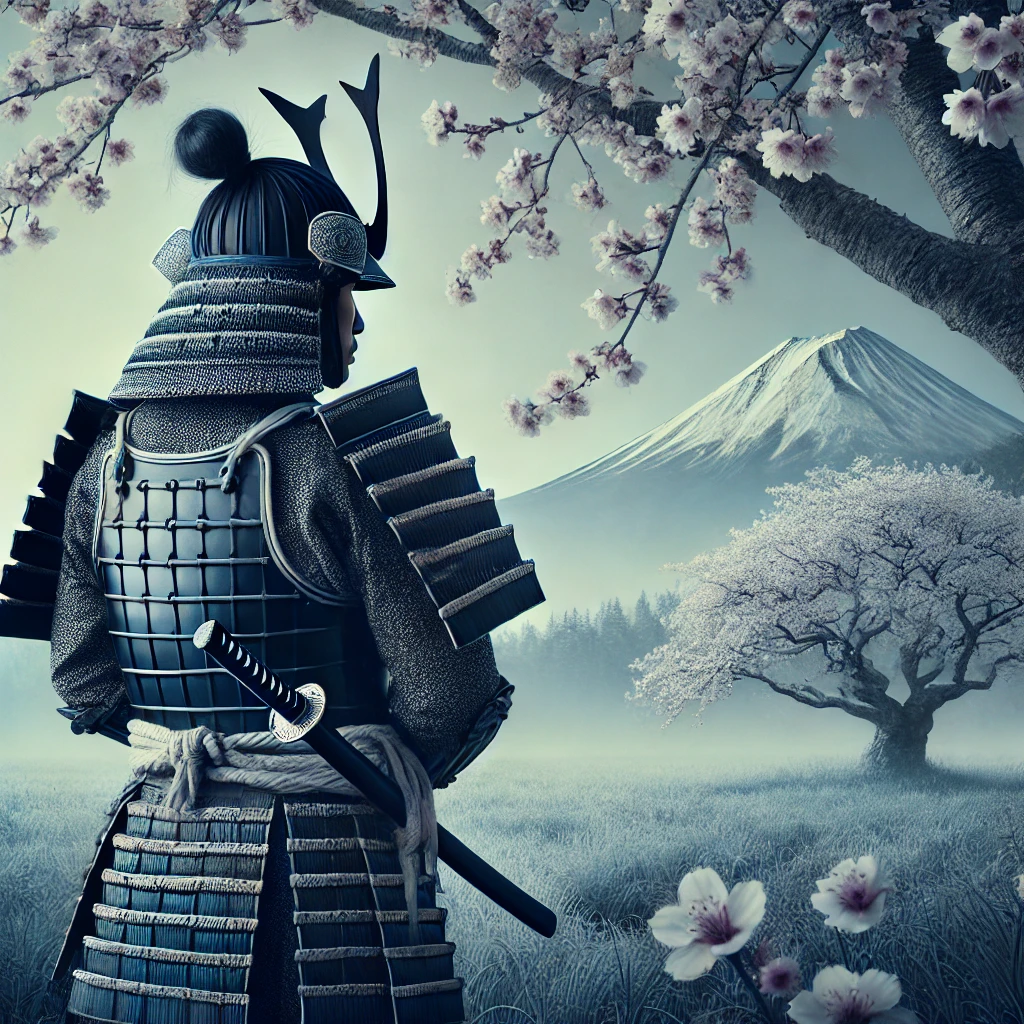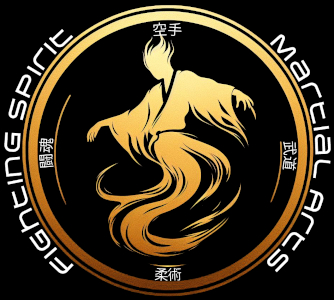
Bushido, translating literally to “the way of the warrior,” represents a pivotal element of Japanese cultural heritage and an enduring set of principles resonating with values of honour, integrity, and moral rectitude. This code of conduct, intrinsically woven into the fabric of the samurai ethos, has transcended its historical roots to impact various facets of modern life, continuing to inspire those seeking a life of purpose and principle.
Definition and Etymology of Bushido
The term ‘Bushido’ derives from two Japanese words: “bushi”, meaning ‘warrior’, and “do”, meaning ‘way’. Thus, Bushido encapsulates the ‘way of the warrior’. Deeply embedded in the martial and spiritual discipline of the samurai, Japan’s historic warrior class, Bushido is characterized by a lifestyle of self-discipline, ethical behaviour, and self-sacrifice.
Historical Significance in Japanese Culture
Bushido developed during Japan’s feudal era, a time marked by samurai warriors who played a central role in the military and governance. This ethos served not only as a guideline for combat and strategy but also as a comprehensive moral code influencing the samurai’s conduct in both public and private life. Over the centuries, Bushido was formalized through various influences, including Shinto, Confucianism, and Zen Buddhism, each adding layers of depth to the warrior’s code.
The principles of Bushido emphasized virtues like loyalty, filial piety, martial arts mastery, and honour unto death. The ideal samurai was not just a skilled fighter but also a loyal retainer, a wise leader, and a man of great integrity and ethical standards. This code of conduct deeply influenced multiple aspects of Japanese society, guiding behaviour and decision-making at both societal and individual levels.
As Japan transitioned into the modern era, the values of Bushido were adapted and integrated into various aspects of national ideology, particularly during the Meiji Restoration and onwards, shaping modern Japanese ethics and corporate culture. Bushido’s influence is evident in practices that emphasize loyalty, seniority, and group harmony, pivotal in Japanese business practices today.
The impact of Bushido extends beyond historical study; it is reflected in the everyday lives of people and the moral decisions they make. Bushido offers a unique perspective on integrity, respect, and ethical conduct that remains as relevant today as it was in the time of the samurai.
In this blog series, we will explore the intricate layers of Bushido, delving into its core virtues and the historical context that shaped this fascinating way of life. Join us as we uncover how the ancient warrior code of the samurai continues to influence modern society, offering timeless lessons on leadership, ethics, and personal development.
The Philosophical Roots of Bushido: Confucianism, Buddhism, and Shintoism
Bushido, the samurai’s code of ethics, not only shaped their martial prowess but also deeply influenced their spiritual and philosophical outlook. This complex tapestry of beliefs was woven from three primary threads of Japanese spirituality and philosophy: Confucianism, Buddhism, and Shintoism. Each of these religious traditions contributed unique elements to the Bushido ethos, creating a robust moral code that guided the samurai in both life and battle.
Confucian Influence on Bushido
Introduced to Japan from China, Confucianism had a profound impact on Bushido, particularly in shaping its ethical dimensions. Confucian philosophy emphasized virtues such as loyalty, filial piety, benevolence, and justice—concepts that became central to the samurai’s moral code. The emphasis on loyalty and duty was particularly significant in the feudal Japanese context, where the relationship between a samurai and his lord was governed by a strict hierarchical code of allegiance. Confucianism also fostered a sense of righteousness and a duty to lead a moral life, which underpinned the samurai’s role as both a warrior and a protector of societal values.
Buddhist Contributions to Bushido
Buddhism contributed to Bushido a perspective on mortality and the importance of meditation and disciplined mind. The Buddhist concepts of impermanence and the cycle of life and death influenced the samurai’s readiness to face death without fear. This acceptance was crucial in cultivating the courage that Bushido celebrated. Moreover, Zen Buddhism, with its emphasis on meditation and intuition, helped the samurai develop mental clarity and emotional control, enhancing their effectiveness in battle and decision-making in life. The Zen focus on the present moment and mindfulness was integral in helping the samurai maintain composure and focus, key attributes in the heat of battle.
Shintoism and the Spirit of Bushido
Shintoism, the indigenous spirituality of Japan, infused Bushido with a deep sense of patriotism and a connection to the divine natural world. Shinto beliefs in purity, sincerity, and the sacredness of nature and the land reinforced the samurai’s duty to protect their homeland and live by a code of ethical purity. The Shinto concept of ‘kami’, or divine spirits residing in nature, emphasized the importance of harmony and respect for the environment and all living things, which resonated with the broader ethical framework of Bushido.
Synthesis of Spiritual Influences
The interweaving of these three distinct yet complementary philosophical and religious frameworks provided the samurai with a holistic approach to life and warfare. Confucianism offered a structured ethical framework, Buddhism introduced introspective practices and a philosophical approach to life and death, and Shintoism brought a unique reverence for nature and the homeland.
This synthesis created a warrior ethos that was not only based on skilled combat but also on a well-rounded persona, embodying wisdom, ethical conduct, and spiritual depth. The integration of these philosophies ensured that the samurai were not just effective warriors but also wise leaders and guardians of their culture.
In exploring these roots, we gain a deeper understanding of how Bushido shaped the samurai’s identity and how its principles continue to influence contemporary Japanese culture and beyond. The legacy of Bushido, enriched by these spiritual and philosophical traditions, offers timeless lessons in integrity, courage, and honour that transcend cultural and temporal boundaries.
The Evolution of Bushido During Japan’s Feudal Era
The feudal era in Japan, spanning from the 12th to the 19th century, was a period marked by significant social, political, and military turbulence. It was during this era that Bushido, the way of the warrior, evolved from a mere set of battlefield tactics into a deep-seated ethical code governing the lives of the samurai, the warrior class of feudal Japan. This evolution was not just a refinement of martial skills but a profound development of the samurai’s moral and ethical consciousness.
The Rise of the Samurai
The emergence of the samurai class in the early feudal period marked the beginning of Bushido as a distinct philosophy. Initially, the samurai were mere retainers serving the nobility and landowners, but as their military and political influence grew, so too did their need for a comprehensive ethical system to guide their actions. Bushido arose from this necessity, embedding the values of loyalty, honour, and disciplined conduct into the samurai’s life.
Influence of Minamoto no Yoritomo
A pivotal figure in the evolution of Bushido was Minamoto no Yoritomo, the founder of the first shogunate in Japanese history. Under Yoritomo’s rule, the samurai were transformed from a loose association of warriors into a well-organized and disciplined military class. Yoritomo established a feudal system that placed great emphasis on martial prowess, loyalty to one’s lord, and strict adherence to a code of conduct that later crystallized into Bushido.
The Role of Literature and Education
During the Kamakura and Muromachi periods, several texts were written that explicitly outlined the principles of Bushido. Works like the “Hagakure” by Yamamoto Tsunetomo and the “Bushido Shoshinshu” by Daidoji Yuzan played crucial roles in spreading the ideals of Bushido among the samurai. These texts emphasized virtues such as rectitude, courage, benevolence, respect, honesty, honour, and loyalty, which were to become the pillars of the samurai’s code.
Bushido and the Art of Peace
Interestingly, as the feudal era progressed, particularly during the relatively peaceful Edo period, the application of Bushido expanded beyond the battlefield. The samurai increasingly took on administrative and bureaucratic roles, and Bushido evolved to emphasize not only martial virtues but also the importance of wisdom, education, and ethical governance. The samurai were expected to cultivate artistic pursuits like calligraphy, tea ceremony, and poetry, reflecting the influence of Bushido on their roles as both warriors and cultured elites.
The Lasting Legacy of Feudal Bushido
The end of the feudal era and the dissolution of the samurai class during the Meiji Restoration did not diminish the impact of Bushido. Instead, its principles were adapted to guide modern Japan in its rapid modernization and industrialization. The ethos of Bushido was infused into the education system, military training, and even corporate culture, underscoring its enduring influence on Japanese society.
The evolution of Bushido during Japan’s feudal era is a testament to its flexibility and depth as a code of conduct. From the battlefield tactics of early samurai to the refined ethical philosophies of later periods, Bushido shaped the moral fabric of the samurai class and, ultimately, of Japanese society as a whole. As we continue to explore Bushido in subsequent sections, we will delve deeper into how these ancient principles continue to resonate in contemporary times, influencing practices and ideologies far beyond the reaches of historic Japan.
Modern Relevance of Bushido Principles in Various Life Pursuits
In contemporary society, the ancient principles of Bushido, once the moral backbone of Japan’s feudal warrior class, resonate far beyond their historical martial context, influencing a wide array of modern pursuits and professions. This enduring relevance is a testament to the universal and timeless appeal of the virtues encapsulated within Bushido, such as integrity, respect, courage, and honour. Today, these principles find application in everything from business and sports to personal development and community service.
Bushido in Business
In the corporate world, the Bushido principles of integrity (義, gi), honour (名誉, meiyo), and loyalty (忠義, chūgi) are particularly pertinent. Business leaders who embrace these values foster a culture of trust and respect, both within their companies and in their external dealings. For example, the concept of gi encourages executives to make decisions that are not only profitable but also ethically sound, enhancing the company’s reputation and sustainability. Similarly, meiyo inspires businesses to uphold their brand integrity and maintain high standards of service, while chūgi strengthens employee loyalty and dedication, crucial for long-term success.
Bushido in Education
Educators and students alike can draw from the Bushido principle of rei (礼, respect), which promotes a mutual appreciation between teachers and learners, enhancing the educational environment. This respect extends to the pursuit of knowledge itself, encouraging a deep, sincere engagement with learning. Additionally, the virtue of jin (仁, benevolence) fosters a supportive and compassionate academic community, where students and educators help each other grow and succeed.
Bushido in Sports
The competitive world of sports is another arena where Bushido principles are highly applicable. The tenet of yū (勇, courage) empowers athletes to push their limits and face challenges head-on, essential for peak performance. Rei promotes sportsmanship, respect for opponents, and adherence to game rules, which are crucial for fair play. Furthermore, the principle of Makoto (誠, sincerity and truthfulness) ensures that athletes compete honestly and with integrity, upholding the spirit of competition.
Bushido in Personal Development
On a personal level, Bushido offers a framework for self-improvement and character development. The pursuit of do (道, the way) involves a lifelong commitment to learning and self-refinement, echoing the continuous improvement practices seen in modern self-help and personal development strategies. This journey fosters resilience, discipline, and a profound sense of personal accountability, encouraging individuals to lead lives that are not only successful but also morally grounded and meaningful.
Bushido in Community Service
Finally, the application of Bushido in community service is evident through the virtues of jin and rei. These principles encourage individuals to engage in acts of kindness and to respect all members of the community, fostering a more cohesive and supportive social fabric. Volunteers and community leaders who embody these Bushido principles enhance their impact and effectiveness, contributing to stronger, more resilient communities.
The principles of Bushido, though centuries old, continue to offer valuable insights and guidelines for modern-day practices across various fields. By integrating these timeless virtues into contemporary life, individuals and organizations can cultivate a culture of respect, integrity, and excellence. As we move towards the conclusion of this exploration, we will reflect on how embracing these principles can not only enrich individual lives but also have a profound collective impact on society as a whole. This connection between past and present demonstrates that Bushido, the way of the warrior, is not just a relic of Japanese history but a living, breathing philosophy with much to offer the modern world.
Conclusion: The Timeless and Universal Nature of Bushido Values
Bushido, though rooted in the historical context of feudal Japan and the samurai class, transcends its origins to offer a universally applicable set of values that are profoundly relevant in today’s global society. The core virtues of Bushido—righteousness, courage, benevolence, respect, honour, and loyalty—reflect ideals that are valuable across cultures and epochs, embodying principles that can guide personal conduct, professional integrity, and communal relationships.
These values, far from being anachronistic, continue to provide a moral compass in a world that often prioritizes success and results over ethical considerations. The principles of Bushido encourage a balanced approach to success, one that does not sacrifice integrity for achievement but rather sees them as complementary forces. This perspective is essential in a rapidly evolving world, where ethical challenges are increasingly complex and require a grounded approach to decision-making.
Preview of Upcoming Blog Posts on the Specific Virtues of Bushido
In our upcoming blog posts, we will delve deeper into each of the virtues of Bushido, exploring their significance and application in both historical and modern contexts. These posts will not only provide insights into the philosophical depth of each virtue but will also offer practical advice on how to incorporate these values into everyday life.
- The Virtue of Gi – Righteousness: Discover how Gi, or righteousness, compels us to live with integrity and make decisions that align with our moral convictions. This post will explore examples of Gi in action and offer guidance on cultivating a righteous mindset in both personal and professional settings.
- Yu – The Courage to Confront Life’s Challenges: Yu, or courage, is not only about bravery in battle but also the resolve to face life’s challenges with heart and determination. We will discuss how this virtue can inspire us to take bold steps in our careers, relationships, and personal growth.
- Jin – The Power of Benevolence and Compassion: Jin teaches us the importance of kindness and empathy. This post will highlight how benevolence can transform interpersonal relationships and community engagements, creating environments that nurture and support all individuals.
- Rei – Respect in Every Action: Rei involves a deep respect for people, traditions, and cultures. Our exploration will cover how maintaining a respectful demeanour can enhance professional interactions and foster a positive social atmosphere.
- Meiyo and Chugi – Honour and Loyalty in Martial Arts: Lastly, we will cover Meiyo and Chugi, which represent honour and loyalty. These posts will discuss the relevance of these virtues in maintaining personal honour and demonstrating loyalty in various aspects of life, from family and friendships to professional commitments and beyond.
Each blog post will not only provide a thorough understanding of these virtues but will also connect them with real-world applications, demonstrating that the way of the warrior is as much about navigating modern life as it was about living as a samurai. Join us as we continue to explore how the timeless wisdom of Bushido can inform and enrich our lives today.”

